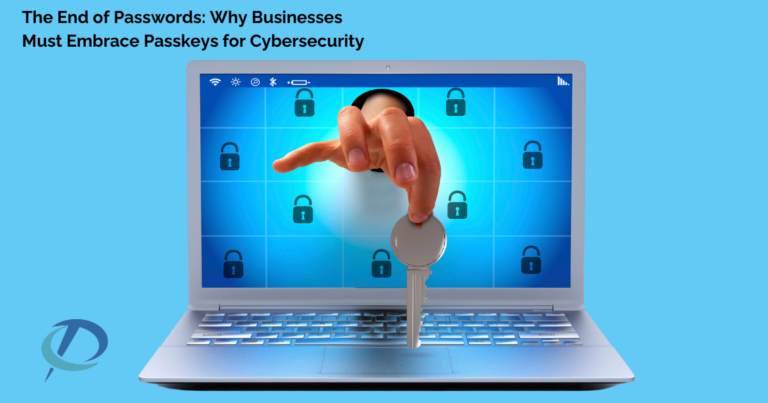Table of Contents
Microsoft recently announced its intention to eliminate passwords for over a billion users worldwide, marking a pivotal shift toward secure, passwordless authentication. In light of this, businesses need to recognise the importance of modernising their security systems, as traditional passwords are no longer sufficient to combat evolving cyber threats. In 2024, password breaches surged by 200%, with phishing attacks rising by 146% year over year. This alarming trend highlights the vulnerabilities of relying on passwords and the urgent need for businesses to transition to secure alternatives like passkeys.
Why Are Passwords Being Replaced?
Passwords have been the cornerstone of digital security for decades, but their effectiveness has significantly declined. Weak or reused passwords are easily exploited through phishing, brute-force attacks, and credential stuffing. According to Microsoft, they block over 7,000 password-related attacks per second which projects the scale of the problem. Cybercriminals are aware of the fading password security therefore, they are accelerating attacks while traditional passwords are still in use, exposing businesses to data breaches, financial losses, and reputational damage.
What Is a Passkey and How Does It Work?
A passkey is a modern and secure way to sign in to accounts without using a password. Instead of typing something you need to remember, like a password, a passkey uses your device to verify who you are. It works with things like your fingerprint, face recognition, or a PIN, making it quick and easy. Behind the scenes, it uses a special security key stored on your device that connects with the website or app you’re logging into. This means no one else can use it, and it can’t be stolen or guessed.
How Are Passkeys More Secure?
The features of passkeys eliminates the weaknesses of passwords and it makes them more secure. Since there’s no password to steal, hackers can’t trick users into revealing it through phishing scams. Passkeys also can’t be guessed, reused, or stolen in data breaches because they rely on a unique security key stored on your device. Additionally, they work only with trusted websites or apps and are tied to your device, meaning no one else can use them. This makes passkeys a safer and more reliable way to sign in, significantly reducing the risk of cyberattacks.
What Does This Mean for Businesses?
The shift to passkeys offers businesses an opportunity to strengthen security, improve operations, and enhance the user experience. For employers, passkeys reduce the risk of data breaches by removing weak or stolen passwords as entry points for cyberattacks. From an IT perspective, they minimise support costs, as there are no passwords to reset or manage. Employees benefit from faster, hassle-free logins, boosting productivity. Additionally, passkeys help businesses meet regulatory security standards, positioning them as leaders in cybersecurity. Businesses which embraces passkeys future-proofs their systems from cyber-attacks and gains competitive edge.
How Can Businesses Transition to Passkeys?
Transitioning to passkeys requires a strategic and proactive approach. Here’s what businesses need to do:
- Evaluate Systems: Review current logins and identify where passkeys can replace passwords.
- Start Internally: Test passkeys with employees to ensure a smooth rollout.
- Upgrade Platforms: Update apps and websites to support passkey sign-ins.
- Educate Users: Train employees and customers on how passkeys work and why they’re better.
- Promote Adoption: Encourage users to switch to passkeys through prompts during sign-ins and password resets.
- Scale Gradually: Roll out passkeys in stages, ensuring systems run smoothly at every step.
The Time to Act Is Now
The rise of cyberattacks and password breaches in 2024 has made one thing clear, that is traditional passwords are no longer sufficient to protect businesses and users. Microsoft’s move to eliminate passwords and promote passkeys is a wake-up call for organisations to take immediate action. Passkeys provide unmatched security, reduce operational costs, and enhance user experiences, making them the future of digital authentication. Businesses that act now to implement passkeys will be better equipped to protect their assets, comply with security standards, and stay ahead in an increasingly digital world.







